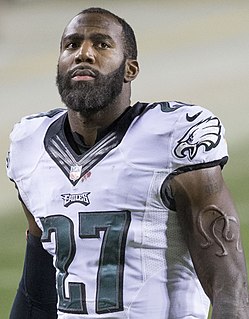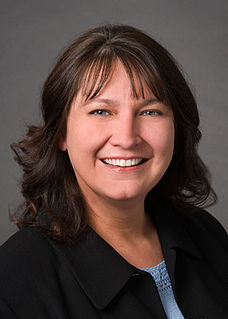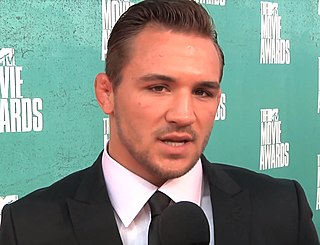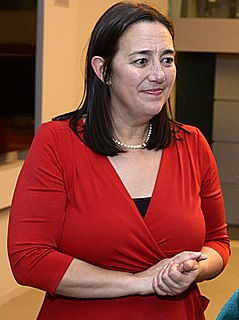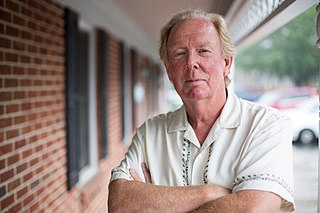A Quote by Eric Schlosser
I think for real change to happen, it's going to have to come from the kids, the community, the teachers, the parents.
Related Quotes
The teacher will never be a parent. The parents are the parents. But they have to engage in some sort of active education beyond just teaching mathematics and French and English because the kids spend more time there than they do with their parents at that age. We have to accept that other adults will be part of our children's education and they will have bad teachers. That's going to happen.
Kids who are middle class, socioeconomically, are surrounded by mentors. They have coaches, teachers, they have family friends, their parents have friends. They might have opportunities, they might have jobs that allow them to experience things that kids in poverty often don't have. Sometimes they come from dysfunctional families. And when you come from a family where money's a real challenge, then it might not be a priority to get you into a summer internship.
In any community there's a strong pull home. People want to return, see their community get better economically and socially. You can build those community-grown opportunities for the kids who've graduated from college to return home, to provide businesses and support things going on. It'll only happen through education.
Kids not only understand [a dark story] but appreciate it … Because in the real world there's fear, and dark things happen no matter how young you are. People lose parents, people lose friends … There's darkness in the world. So I think when kids are talked to in that way, they appreciate it. They're not being given some candy-coated, 'Oh, this is a world where there are no stakes.' I think that actually insults their intelligence.
Ensuring that we help prepare all kids for life, college, and work in our knowledge-based economy will require a collaborative, sustained effort from all stakeholders - from the president and the secretary of education on down to states, school districts, principals, teachers, parents, and community members.
Think about reading: Today, parents would love it if their kids read books more because the parents understand the books. Just over 100 years ago, parents were upset because their kids were reading dime-store novels. Parents would say, "I don't want you inside reading anymore. Get outside and play." I guarantee you, in 50 years or so, parents are going to say, "You're not going outside to play until you finish that video game."
I grew up in a town where there were no adults over forty who weren't somebody's parents. It was, unfortunately, the kind of town that's a "great places to raise kids" - that's basically code for "there are no adults here who are not parents." I had a few teachers who were kind of weirdo drama teachers and were hugely influential.



